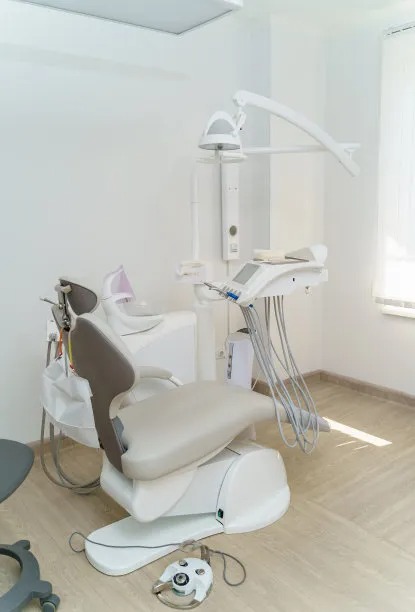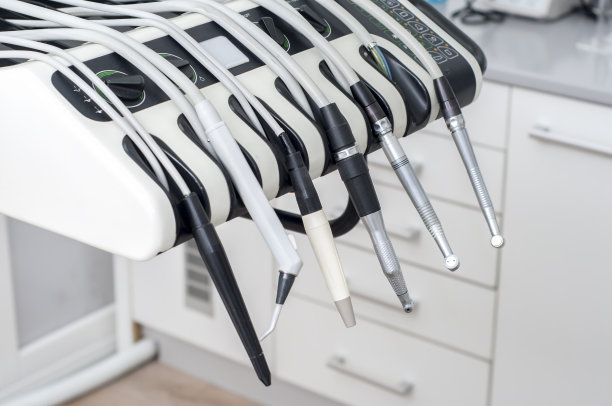Summary: Dental implantation is a reliable solution for restoring oral functionality and aesthetics. This article delves into essential guidelines and considerations necessary for safe and effective dental implant procedures. By examining aspects such as patient assessment, surgical techniques, post-operative care, and maintenance of dental implants, we aim to provide valuable insights for both patients and dental professionals. Adhering to these guidelines will ensure optimal oral health and the longevity of dental implants, ultimately enhancing the patient experience and outcomes.
1. Comprehensive Patient Assessment is Vital

The first step in dental implantation success lies in conducting a thorough patient assessment. Dentists must evaluate the patients overall health and dental history to determine their suitability for dental implants. Factors such as age, bone density, and existing medical conditions can impact the success rate of the procedure.
Moreover, imaging techniques like X-rays or CT scans facilitate the visualization of jawbone structure and density, allowing for more accurate treatment planning. These assessments help in identifying any potential risks involved and in creating a personalized implantation strategy for each patient.
A thorough assessment also includes understanding the patient’s expectations and motivations for seeking implants. Comprehensive communication helps in establishing realistic goals and contributes to patient satisfaction post-procedure.
2. Precision in Surgical Techniques Enhances Outcomes
The surgical phase is crucial for the successful placement of dental implants. Using advanced techniques and technology can significantly increase the accuracy of implant placement, thereby improving the overall outcome. Dentists should utilize computer-guided surgery systems whenever possible to enhance precision and alignment during the procedure.
Furthermore, selecting the appropriate type and size of implants based on individual assessments contributes to better integration with the bone structure. Proper surgical techniques, such as minimally invasive approaches, can reduce recovery time and potential complications.
Before surgery, educating patients about the process and what to expect helps in alleviating anxiety. Ensuring a calm and supportive environment during the surgical procedure is equally important for a positive outcome.
3. Post-operative Care is Essential for Healing
Effective post-operative care is indispensable for promoting healing and ensuring the longevity of dental implants. After the procedure, dentists should provide patients with clear instructions regarding oral hygiene, dietary restrictions, and pain management. Adhering to these guidelines is vital for preventing infections and complications.
Regular follow-up appointments are crucial for monitoring the healing process. During these visits, the dental professional can assess the integration of the implant with the bone and identify any issues that might arise. Ongoing communication helps in addressing patient concerns during recovery.
Its essential for patients to understand the importance of avoiding harmful habits, such as smoking, which can adversely affect healing and implant success. A supportive approach during recovery can empower patients to adhere to care instructions for optimal results.
4. Long-term Maintenance Promotes Implant Longevity
The longevity of dental implants is significantly influenced by maintenance and care. Patients must be educated about the importance of regular dental check-ups and professional cleanings. This proactive approach aids in monitoring implant health and preventing potential complications.
In addition to professional care, educating patients on proper daily oral hygiene practices is vital. Brushing and flossing around implants should be emphasized to prevent plaque buildup and inflammation, which can lead to peri-implant diseases.
Furthermore, lifestyle factors such as a balanced diet and the cessation of smoking can greatly enhance the longevity of dental implants. Encouraging patients to adopt healthy habits will contribute to overall oral health and implant success.
Summary:
In conclusion, ensuring safe and effective dental implantation involves adherence to essential guidelines across various stages, from patient assessment to long-term maintenance. A comprehensive approach that includes precision techniques, diligent post-operative care, and dedication to daily oral hygiene is crucial in achieving optimal oral health and implant longevity. By following these guidelines, dental professionals can improve the quality of care, ensure patient satisfaction, and ultimately enhance the effectiveness of dental implantation procedures.
This article is compiled by Vickong Dental and the content is for reference only
Vickong Dental
Vickong Dental is a large medical group established in Hong Kong in 2008 by professors from well-known medical universities in Guangdong and Hong Kong, as well as medical doctors from key national '985' universities (including Master's supervisors and senior professors). The chain of branches brings together expert dentists with PhDs and Master's degrees from Hong Kong and Mainland China, committed to providing high-quality dental treatment.
"Vickong Dental Practices the University Motto of 'Healing and Serving Society,' with a Stable Operation for Sixteen Years. It Has Been honored with Hong Kong Enterprise Leaders's Choice,' and is a Global Trusted Implant Center for the Nobel Implant System. Recommended by Hong Kong Metro Broadcast and Guangdong Television, it Serves Customers from Over Thirty Countries and Regions, Gaining the Trust and Favor of Citizens from the Guangdong-Hong Kong-Macau Greater Bay Area and Surrounding Cities.

Thousands of customers' unanimous praise
The most recognized and highly recommended dental service by customers in the Guangdong-Hong Kong-Macau Greater Bay Area
We Ensure You Receive Detailed Care and Attention Here
Hong Kong standards, Shenzhen prices, Your Trusted English-speaking dentists

Vickong Dental Medical-Grade Instrument Disinfection Process
Vickong Dental Medical-Grade Instrument Disinfection Process

Vickong Dental Chain: A Warm and Comfortable Environment for Treatment






Appointment Hours

Q&A
Why choose Vickong Dental?
Vickong Dental practices the university motto 「Medicine to Benefit Society」, with each branch bringing together highly qualified dentists with doctoral and master’s degrees from Hong Kong and the Mainland, and has maintained seventeen years of steady operation。Recipient of 「2024 Hong Kong Enterprise Leaders Brand」, 「2025 Hong Kong Enterprise Leaders Brand」, a Nobel Biocare Global Trusted Implant Center, and a brand recommended by Metro Radio Hong Kong and Guangdong TV。
To date, we have served customers from more than thirty countries and regions,earning exceptionally high word-of-mouth recognition and trusted recommendations from residents across the Guangdong-Hong Kong-Macao Greater Bay Area and surrounding cities
We have eight major branches in Zhuhai、Shenzhen,and a consultation and service assurance center in Hong Kong,so you can book a free consultation at any time for any questions,which is very reassuring.
If I do not accept the quotation after the CT scan, will I be charged??
No! As long as the actual treatment has not started, you will not be charged any fees.
Will there be any additional charges during the treatment process?
No, there won’t be any additional charges. Before treatment begins, we will clearly explain the treatment plan and its corresponding fees. Only after the patient agrees and signs the consent form will we proceed with the dental service.
Can I pay in Hong Kong dollars?
Yes. Vickong Dental accepts payment in Hong Kong dollars. The amount will be converted based on the exchange rate of the day, and the applicable rate will be clearly communicated to you in advance.
Can I reschedule my appointment at any time?
Yes. Please contact us via **WeChat** or **WhatsApp** as early as possible, providing your original appointment time and details, along with your preferred new date and time slot for rescheduling.













